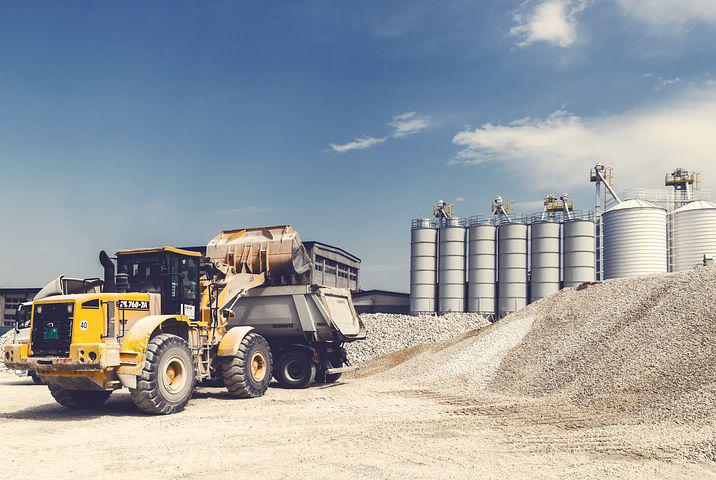Best Paying Jobs In Industrial Machinery/component. Industrial machinery and component companies build the devices that build our world. They provide a range of services from initial product design, to manufacturing, to software engineering, to fleet maintenance and repair. Working in this industry means working with new technology and constantly changing methods of operation.
It also means that you’ll be working with some of the most well-paid professionals in the field today. According to Glassdoor, the average base pay at an industrial machinery or component company is over $100,000 per year (over $47 per hour). Nearly half or more of all employees earn over six figures annually. The average salary for sales engineers and managers is typically near the top end of this range while less technical positions like assemblers and machinists start as low as $25K a year but still have great room for growth.

20+ Best Paying Jobs In Industrial Machinery/component
These are 20+ Best Paying Jobs In Industrial Machinery/component
Sales Engineer
A Sales Engineer is an occupation in the Engineering and Manufacturing industry that performs tasks related to the sales of industrial machinery and components. Sales Engineers are typically employed by machinery and equipment manufacturers and distributors. Sales engineers specialize in a particular type of industrial product or application area.
Manufacturing Engineer
If you love to design and create things, the manufacturing engineer job may be a perfect fit for you. A manufacturing engineer is someone who oversees the production of products from start to finish. They are responsible for making sure that all steps in the manufacturing process are done properly and efficiently.
A good manufacturing engineer has both technical skills and good people skills. They must have a solid understanding of how each step involved in creating a product impacts another step, so they can identify areas where improvements can be made to improve efficiency or save money.
Additionally, they must have excellent communication skills so they can effectively communicate with their team members about any problems or ideas they may have regarding the creation of new products or improving existing ones.
Design Engineer
Design engineers are responsible for the design and development of new products, components, and systems. They also develop improved versions of existing products, components, or systems. The design engineer is involved in the entire product development process from concept to manufacturing. A typical work day for a design engineer might include:
- Reviewing drawings or blueprints created by other engineers to ensure that they have been built correctly.
- Working with an engineering team to identify any problems with current designs or processes that can lead to improvements in the future designs.
This is an important job for people who enjoy working as part of a team but also like having some flexibility about when they can work independently on their own projects throughout the day.
Project Manager
Project managers are the people who manage projects, which can include the planning and execution of a project. They are responsible for overseeing all aspects of a project, including budgeting, scheduling and resource allocation. A Project Manager is typically employed in an office and often reports directly to the Chief Executive Officer (CEO) or Chief Operating Officer (COO).
Quality Manager
A quality manager is responsible for the quality of the products or services. They also ensure that all processes and procedures are up to standard, including those related to people, environment and information.
A good example of a job description would be: “You will be responsible for leading and developing a team of individuals working in the field of product design engineering. You will need to create an environment where they can thrive while providing them with tools needed to produce work at high standards.”
The ideal candidate should have an educational background in industrial engineering or similar fields as well as experience in planning projects with budgets exceeding $100 million dollars.
Senior Software Engineer
The skills and qualifications required to become a senior software engineer:
- A bachelor’s degree in computer science or other related field.
- Experience with a programming language such as Java, C++ or Python.
- Experience with one or more operating systems, including Windows 10 and Linux distributions such as Ubuntu.
The working conditions of a senior software engineer:
- Work is typically done in an office setting; some travel may be required for business meetings. The job can be stressful because deadlines often require you to work late into the evenings on occasion. However, there are many perks to being an employee of a large corporation including paid time off for vacation or sick days.
Director of Operations
The Director of Operations is responsible for the daily operations of a company. He or she is also in charge of making sure everything runs smoothly and efficiently at all times. This can include things like scheduling employees and arranging meetings, as well as attending to more technical details such as overseeing product development, quality control, and after-sales service.
Process Engineer
Process engineers are the people responsible for the development and improvement of a manufacturing process. They ensure that the necessary equipment is being used, check for any potential issues, and make changes to improve efficiency. This can include anything from testing new products or materials to ensuring that machines are working properly when they come back from maintenance.
Process engineers will likely have a bachelor’s degree in mechanical engineering, industrial engineering or chemical engineering; however, some may also hold an MBA (Master’s in Business Administration).
In addition to their education requirements, many employers prefer candidates with previous experience as well as certifications from organizations like NACE International (National Association of Corrosion Engineers).
Plant Manager
Plant managers are responsible for the overall operation of the factory. They ensure that all employees and production resources are working together to create high-quality products, while using raw materials efficiently.
Plant managers have a lot on their plate but if you’re up for the challenge and thrive in an environment where there is always something new to learn, a plant manager position could be right up your alley!
Director of Engineering
As a Director of Engineering, you’ll be responsible for the overall operation of your department. In addition to supervising and managing staff members, you’ll also be tasked with developing new products and services for your company.
Your responsibilities will include leading projects, as well as budgeting for them. You may even be asked to attend meetings with senior management on occasion to share information about your department’s progress.
As one of the highest-ranking positions in an organization, this job requires a great deal of leadership ability as well as strong technical skills. A Director of Engineering must have excellent organizational skills and good communication skills so he or she can successfully lead a large team towards completing projects on time.
While maintaining high standards in quality control measures taken by his/her staff members working under him/her at all times when performing their duties on each project assigned by upper management within their respective companies where they work together closely together every day working very closely together
Human Resources (HR) Manager
Human resources managers are responsible for the hiring, training and development of employees. They also manage employee relations, compensation and benefits, and employee records.
They may also be called human resources directors, human resources specialists or HR generalists.
Mechanical Engineer
Mechanical engineers are the people who make all of our modern-day marvels possible. They design and develop engines, machines, tools and other mechanical devices. Mechanical engineers may work on small projects such as designing moveable parts in a medical device or creating an engine for an energy efficient car, or they might be involved in large-scale manufacturing processes such as designing assembly lines for airplanes or ships.
Mechanical engineers typically need a bachelor’s degree in mechanical engineering or mechanical engineering technology; however, some employers will accept graduates with a degree in another field if certain courses were taken within the past five years (for example: physics).
In addition to required coursework at the undergraduate level, most entry-level job openings require experience working with CAD software programs like Solid Edge ST5 from Siemens PLM Software. Engineering internships are also valuable because they provide real-world experience under an experienced engineer’s supervision at no cost to you!
As with other types of engineers, you’ll need strong analytical skills and problem solving abilities to succeed as a mechanical engineer. You’ll also want good communication skills so that everyone involved understands what needs to be done to complete any given project successfully!
Lead Developer
A lead developer is a software developer who is in charge of a software development team. Their responsibility includes the following:
- Quality of the software developed by their team
- Performance of their team, as well as its productivity
Marketing Manager
Marketing manager is a person who is responsible for the marketing activities of a company. A marketing manager is responsible for the marketing of a product or service.
Quality Assurance (QA) Specialist/Manager
A Quality Assurance (QA) Specialist/Manager is responsible for the quality of products and services offered by an organization. The QA manager ensures that every product meets the requirements of its customers, but also ensures that each employee follows proper safety procedures while working on their machines or equipment.
Additionally, a QA specialist has to ensure that the company’s manufacturing facilities have regulatory compliance with government agencies like OSHA and EPA, among others.
They must also ensure the quality control processes are being adhered to by employees at all times as they perform their daily tasks in various departments within a company’s structure including production lines and assembly lines where materials are being processed into finished goods which can be shipped out on time via packaging lines before being stored in warehouses until needed by consumers who buy them either online or offline through retail stores like Walmart®, Target®, etc…
Purchasing/Procurement Manager/Specialist
Purchasing/Procurement Manager/Specialist
A Purchasing/Procurement Manager/Specialist is responsible for purchasing and procuring raw materials, components and services for their company. They manage the procurement process from selection to delivery of materials or services.
Job Description:
The primary responsibility of a Purchasing/Procurement Manager is to ensure that all purchases within their organization are made with maximum efficiency and effectiveness. They will work closely with other departments within the business to ensure that they are providing value for money on every purchase made by their department.
Job Duties:
Purchasing Managers need to have good leadership skills as they will be required to lead teams across several different areas of their company such as finance or marketing (depending on what type of company they work in). As well as this they need excellent communication skills so that they can communicate effectively with other departments within their organization when requesting supplies from them.
Requirements
A bachelor’s degree in business administration or engineering may be helpful but not essential if an applicant has strong work experience instead.
Crane Operator
Crane operators are responsible for operating cranes, which are used to move materials and equipment around a manufacturing facility. Crane operators must be able to lift heavy loads and move them in a safe and efficient manner. This requires good physical strength, large muscle control, and excellent coordination.
In addition to strong physical abilities, crane operators must have good spatial awareness so that they can view the load from all angles before moving it into place. They also need excellent hand-eye coordination because they will be lifting heavy loads up high into the air.
It’s also important that crane operators have good communication skills so that they can communicate with other team members who may be working nearby or other workers on another floor of a building where dangerous situations could occur if instructions were not given clearly during an operation.
Locomotive Engineer
Locomotive engineers are responsible for the safe operation of locomotives. They’re employed by railroads and have a variety of responsibilities, including train operations and maintenance. They typically work in railroad yards or on main lines, and they may be required to switch trains between tracks as needed.
Additionally, locomotive engineers must inspect their equipment regularly to ensure it is in good working order. If an engine needs servicing, they’ll coordinate with other workers to get the job done safely and efficiently.
Locomotive engineers must also be able to read maps that show different types of signals used along railroad tracks (e.g., stop lights). These maps help them determine which types of routes are available for each train as well as how long these routes will take them so they can plan accordingly before departing from one station or another location along their route.
Engineering Technician
Engineering technicians are highly skilled professionals who perform a variety of tasks, including:
- Establishing and implementing quality control processes.
- Setting up new machinery, equipment, and facilities.
- Assessing the effectiveness of existing processes and procedures to ensure they meet industry standards.
Becoming an engineering technician requires extensive education in mechanical engineering technology or industrial technology. The majority of employers require applicants to have at least an associate degree; some may also ask for a bachelor’s degree as well as relevant work experience prior to hiring you. After you’ve been hired, expect to earn between $40,000-$85,000 per year!
Maintenance and Repair Engineer
Maintenance and repair engineers are responsible for the maintenance, repair and upkeep of machinery and equipment in industrial settings. They are responsible for the maintenance of all mechanical, electrical, electronic and computerized equipment in an industrial setting.
Conclusion
The companies that are hiring in this field need qualified individuals with skills to match their needs. In addition, many of these jobs require top-tier education, but the payoff is well worth it!






